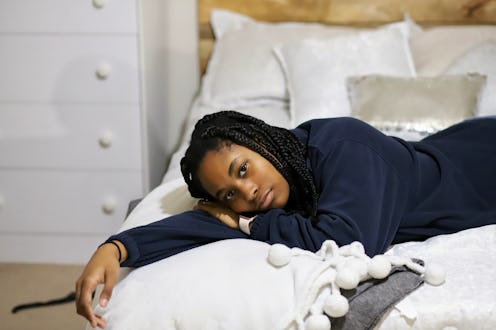Sex & Relationships
A Sex Educator Explains How Antidepressants Can Impact Your Sex Drive
There’s a difference between spontaneous and responsive desire.

In this week's Sex IDK column, Emma McGowan, certified sex educator and writer, answers your questions about what to do if antidepressants kill your sex drive.
Q: How do you restart your sex drive after Prozac knocked it out?
Ugh, what I wouldn’t give for someone to invent an antidepressant that consistently doesn’t affect sex drive! So many of us with chemical imbalances see a lowering of libido from depression or anxiety or whatever our ailment is, only to lose it altogether when we get medicated. For many of us, the tradeoff is worth it. But for many others, it isn’t. And wouldn’t it just be better if we didn’t have to make that tradeoff at all?
Some antidepressants actually increase libido in some people. (Wellbutrin comes to mind.) But if your imbalance needs a particular medication and it’s not one of those few, then you may be out of luck, my friend.
But wait! You’re not totally out of luck! According to Dr. Emily Nagoski in her seminal book Come As You Are, libido functions in two ways: spontaneous and responsive desire. Many people only think of “spontaneous” desire, which is basically “I feel horny, so I’m going to figure out a way to have sex.” But the other type, “responsive” desire, is “I’m in a sexual situation and that’s making me feel horny.”
See the difference there? In one, the horny comes first. In two, the sex comes first. In both, you come first! (Hopefully.)
So, suppose you feel like your sex drive is “knocked out” after starting an antidepressant, like Prozac. In that case, I suggest doing something that might feel a little weird at first: Initiating sexual activity (whether it’s with yourself or with a partner or partners) and seeing what happens.
It’s going to be a different experience and arousal cycle than you’re used to if you used to have more of a spontaneous sex drive. It might feel kind of awkward at first. But you might be surprised by how your body can respond to situations even before your brain gets in on the game.
Another thing to try is reading erotica or watching porn to get in the mood before you start making out with a partner or pulling out the vibrator or butt plug or whatever your toy of choice is. It can be an efficient way to (literally) get the juices flowing and get your body and brain into a sexy state before getting to the main attraction.
Finally, if you're in a relationship, have some conversations with your partner. Tell them what’s going on. Let them know it’s not about them. And encourage them to initiate sex (if that’s something you’re comfortable with) with the knowledge that it might take you a couple of minutes or more to get into it.
I also encourage you to look at this new way your body is behaving as an opportunity to explore a different way of being sexually, rather than a loss. New experiences — especially in the bedroom — are always fun, right? So, get sexy with it and, at the same time, give both yourself and your partner some grace as you work it out. But know that you can absolutely do it.